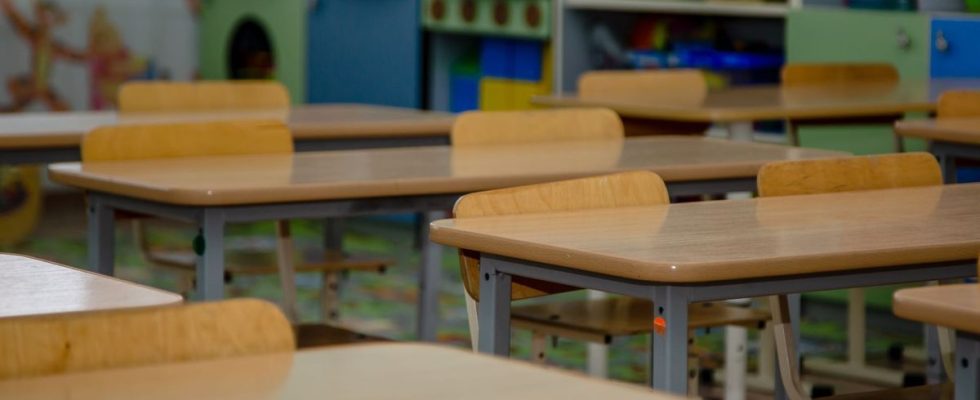Published on
Updated
Reading 3 min.
in collaboration with
Guislaine David (Co SG and spokesperson for SNUipp-FSU)
And
Jenyfer Plaud-Volante (Elementary school principal)
While the farmers’ movement is in full swing, it is now the teachers who announce they will strike tomorrow, Thursday February 1st. What are their demands? Insights from Guislaine David, co-general secretary and spokesperson for SNUIpp-FSU and Jenyfer Plaud, director of an elementary school.
After farmers and taxi drivers, it is the turn of teachers to strike. The movement is announced for tomorrow Thursday February 1st. But what are the teachers’ demands? Doctissimo chose to interview Guislaine David, co-general secretary and spokesperson for SNUIpp-FSU and Jenyfer Plaud, director of an elementary school.
Degraded working conditions which have an impact on student learning
When asked about the reasons for the teachers’ anger, Guislaine David immediately announced that the teachers’ anger was about their working conditions. “Our working conditions are deteriorating more and more and this has an impact on student learning.” she declares bluntly. In detail, the spokesperson mentions “overcrowded classes, a lack of adults to supervise students with special educational needs and the disappearance of teaching positions and specialized staff, such as school nurses or social workers“.
Reforms such as the doubling of CP and CE1 classes have been put in place to reduce numbers in 2020, but this is not enough, for Guislaine David. “This decision is often mentioned to say that these classes have fewer children. But in reality, this only concerns schools in priority zones, or around 20% of schools in total..
And the figures prove him right: France is the country in Europe with the highest class numbers, according to the Organization for Economic Cooperation and Development (OECD).
“The school must provide fundamental knowledge but also a culture to the students”
Other points of tension for teachers concern working conditions, career prospects and salaries. “Here again, we often talk about the upgrades put forward by the government, but they only concern teachers at the start of their careers, the others, those in the middle and end of their careers, have been forgotten.“.
This argument, which Guislaine David evokes as “essential to attract younger generations to the profession”, Jenyfer Plaud does not necessarily consider it a priority. “Obviously, no one refuses to earn more, but we know that by being a teacher, we will not earn thousands and hundreds” she qualifies. On the other hand, she is counting on the strike day to alert the State to the lack of human resources and the changes imposed repeatedly. “We clearly no longer have the means to carry out our profession properly. Not only to supervise students, but also those who have special needs, who we educate with others, waiting for a place in a specialized structure.”. The director, whose establishment has 8 classes and 210 students, does not question the education of children with disabilities within the school, but deplores the lack of trained adults and training to supervise them. “The Versailles academy has only two autism representatives, which clearly shows the glaring lack of specialized professionals for these children. On a daily basis, in class, we take the time to take care of it, but it is time wasted for the other students.“.
Putting school back at the center of society
Beyond the children in difficulty, the two women also report a series of decisions, which make no sense, “a mille-feuille of reforms that pile up, because each minister wants to leave a mark of his passage” quips the director.
Result: the “shock of knowledge” envisaged by Gabriel Attal, while he was in post at National Education and in particular the “level groups” which will have to be put in place at the college are heresy, for our two interlocutors. “All studies have shown that separating students does not work!” exclaims the SNUIpp-FSU spokesperson.
While the director wonders about the future of the children, who will be among the “less good”. “How can we be asked to focus efforts only on maths and French, to the detriment of the rest? Culture is an integral part of public school, it is a means of accessing certain disciplines such as art, to which certain children do not have access in their families.” she adds. “EThe point of mixing students is to create mutual aid, to lift up those who are in the most difficulty. There, we are witnessing a race to the bottom; what is needed is to put school and its values, such as respect, back at the center of society.”.
For the two women, the reform of National Education must therefore be carried out in depth, by “letting the teachers do their work”. And it will have to answer a central and essential question: what do we really expect from public schools in 2024?
